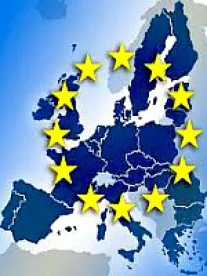In January 2014 the European Parliament (Parliament) voted to approve amendments to new measures intended to strengthen the hand of the European Union (EU) in trade talks with Non-EU (Third Country) jurisdictions. The measures, initially tabled by the European Commission (the Commission) in March 2012 and then endorsed by the Parliament's International Trade Committee (and approved by that body by 19 votes to 10, with one abstention), received 479 supporting votes in Parliament, compared with 184 votes in opposition and 17 abstentions.
What is the aim of the measures?
The aim behind this new trade tool is to introduce additional reciprocity into the international procurement system and to correct what the EU views as a trade imbalance. Under the proposals the EU would be able to prevent Third Country bidders from bidding for EU public procurement contracts worth €5 million or more excluding VAT. This exclusion of Third Country bidders will only apply to bidders which have more than 50% Third Country "content". The EU has suggested that any contracts made in breach of these provisions would be declared ineffective under the remedies directive. Parliament has recommended, however, that there be an "exception for least-developed countries" and among these, those countries that are considered "to be vulnerable due to a lack of diversification." The EU stresses that the aim of the measures is not to close EU trade borders, but rather to use them as a tool in trade negotiations with Third Countries and to aid EU firms in procuring Third Country contracts.
Is there really a trade imbalance to correct?
The Commission has investigated the current procurement levels in the EU and Third Countries. The EU is estimated to have 82% of its public procurement markets open to Third Country bidders. This is in contrast with the likes of the United States of America and Japan which have only 32% and 28% of their respective procurement markets open to outside tenders. The Commission investigation identified what it has labelled as a "lack of substantial reciprocity" in international procurement markets; leading to a statement from Michel Barnier, the Commissioner for the Internal Market and Services, that the EU "aims for fairness and reciprocity in world trade."
One further reason behind this new posture from the EU is its own internal economic woes. Procurement is now considered a lifeline for an EU still struggling to pull itself out of the Eurozone crisis. This view has been reinforced in light of recent statistics; it is estimated that €10 billion of EU exports currently find their way into global procurement markets, equating to 0.08% of EU GDP. However further estimates suggest that there is €12 billion of unrealised exports available for the EU (unrealised due to the current imbalance in place between the EU and Third Countries). Releasing this pent-up export potential would provide a great boost to the EU's economic outlook.
Not everyone is in support of the new proposals
In a separate vote, 214 MEPs (31.7% of the total turnout) voted in favour of rejecting the proposals. While this figure is a long way from Parliamentary majority, it does seek to highlight the fact that not everyone in the EU is in favour of the new proposals. In fact, there are certain national and party blocks in Parliament that have expressed their disapproval to the measures, amongst them, the United Kingdom. The reasons for disapproving of the measures can be broken down into the three following arguments:
-
Firstly, critics of the proposals have raised concerns that the measures could be seen as a provocative act on the part of the EU, and one, to which Third Countries will respond in kind. The concern is that the new measures could witness a return to trade-wars in a similar vein to those previously between the EU and Latin America (bananas), China (wine) and most notably the United States and 'Bush's war on Roquefort'. The latter saw the United States' Government place a 300% tax hike on the French cheese, in a possible retaliation for the EU ban on imports of U.S. beef fed with the hormone ractopamine. Ultimately, in the opinion of those who have voted against the proposals, the new tool has the potential to spark a new trade war.
-
Secondly, critics of the proposals suggest that the plans are a direct contradiction to one of the very principles that the EU is built upon, free trade. In a United Kingdom policy note published on 5 April 2012, the UK Cabinet Office labelled the proposals as risking "tit-for-tat protectionism", and in danger of harming trade prospects and the potential to boost future growth.
-
Lastly, and of paramount importance, is the suggestion that the new tool could actively reduce value for money. One opinion is that the current system, whereby the bidder with the best value for money is awarded the contract, could be done away with if that bidder happened to fall within the criteria barring it from bidding in the first place. This, critics claim, could also lead to fewer effective bidders in the pool, thus reducing the competitiveness of EU firms, and continuing to undermine value for money.
In what could be considered a response to the naysayers, Parliament has proposed and approved various amendments to the original proposals introduced by the Commission. One such proposal suggests time limiting the application of any restrictive measures taken through an implementing act, to up to five years. This could have the option for an extension of a further five year period. This is thought to be an attempt to appease those who believe the new measures could result in a permanent closure of the market. In reality however, this amendment is academic rather than practical as even without the amendment in place there would be very little standing in the way of the EU reviewing the measures post implementation and, upon finding they are having a less than desirable effect on the market, withdrawing them.
It should be noted, however, that Parliament has rejected any suggestion that the new measures have been created with a protectionist agenda in mind. The Parliament states that the sole aim of the new tool is to remedy market access imbalances between the EU and its trading partners.
What will the next steps be?
Parliament having had, for the time being, its say; the next step is for the measures to be reviewed by the Commission in light of the proposed amendments. A full plenary vote on the measures as a whole will take place following this, with a date yet to be confirmed. As the measures begin to take shape, and the legislative pace begins to quicken, one thing is certain, these new measures are firmly on the European agenda. Third country bidders in the EU may soon find the market a less friendly than it is at present unless their own governments take steps to level the playing field.



 />i
/>i

